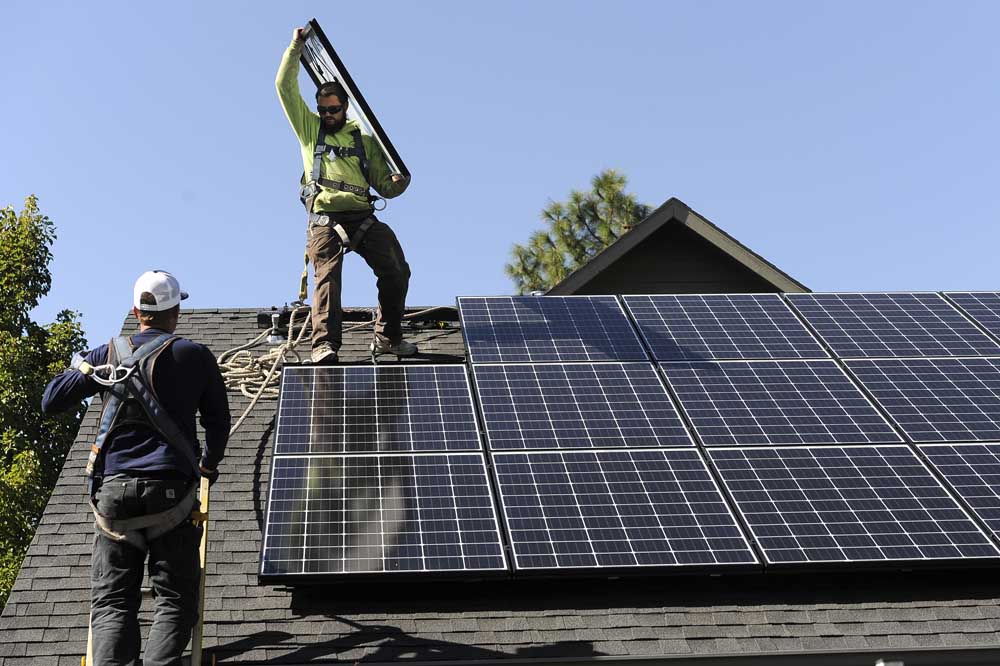Capital Chatter: One man’s search for meaning in Oregon’s health care system.
Published 5:00 pm Thursday, September 8, 2022

- capital chatter logo
I won’t bury the lead. (Or the lede, if you prefer old-fashioned spellings.)
I lost. I will never retrieve those precious hours spent on the phone. Calling from my couch. Driving across town. Calling from a drugstore parking lot. Calling from the couch again.
Trending
Ah, but have no pity for me. One joy of being a columnist is that every experience, no matter how frustrating, becomes a potential storyline.
Thus, today’s Capital Chatter is not the one I planned about the latest political meanderings in Oregon. Rather, it is about one man’s search for meaning in Oregon’s health care system.
You might recall I was hospitalized with severe COVID-19 a year ago, despite being fully vaccinated. It was awful – the symptoms, not the care, which at Salem Hospital was wonderful.
My insurance coverage was stellar. My only out-of-pocket expense was $285 for the ambulance ride, which was well worth it. My insurer was billed $53,459.89 for my hospital stay but paid the negotiated price of $23,123.54.
I wanted an itemized billing but never received one. In any case, what about the bazillions of folks who have lousy or no insurance?
We don’t have a health care system; we have a medical payment system. And it’s wacky.
Trending
But wait … there’s more.
For family reasons that I need not go into, I need the new COVID-19 omicron vaccine ASAP.
Vaccinations are added layers of health safety, though not guarantees. I liken them to the safety equipment and precautions I employed while mountain climbing or hot air ballooning in my earlier days
Because laughing often is better than crying, here is how my vaccination foray unfolded:
Tuesday and Wednesday: Hallelujah! Vaccine supplies are heading to Oregon.
I check online with my insurer, who is my health provider. Their website encourages everyone to get vaccinations, provides links for doing so but offers no available appointments. So helpful.
I call. The representative also finds no info on when the new vaccine will be available. Keep checking, he suggests. Anything else I can do for you? he asks, wishing me a great day. This is a line I will hear often.
I email my doctor about scheduling my colonoscopy and slip in a mention of needing the omicron vaccine as soon as possible. (I’m still waiting to hear back.)
Thursday morning: I’m up at 5-ish to work on “Oregon insiders” and begin writing Capital Chatter. Typically, I do interviews and research throughout the week but write on Thursday, my deadline day. Journalistic life happens on deadline.
I check the insurer website again for omicron appointments. And again. For me, no news is bad news.
Thank goodness for local news stories, which point me to a government website. I find a pharmacy across town with one appointment available: 11:30 a.m. Bingo!
I arrive with my paperwork filled out. Helpful pharmacy folks relentlessly punch bunches of keys on their computer. Oh, but they say my insurer won’t cover the vaccination.
No problem, I say. I’ll pay out of pocket.
No, they say. That’s illegal under federal regulations. Consumers cannot be charged for COVID-19 vaccinations.
The pharmacy staff tries all sorts of ways to process the vaccine through my insurer and/or Medicare. No luck. Finally, they tell me to contact my insurer and ask for an override enabling them to shoot me … with the vaccine, that is.
I’m caught in a loop. My insurer cannot give me the vaccine yet. Neither can an outside pharmacy apparently do so. And I’m not allowed to pay for it myself.
I sit in the car, call the insurer and eventually am passed through four people. Each insists I can get the vaccine at the pharmacy and the insurer will reimburse me. I am politely persistent, as one of my first editors taught me.
I explain A) I’m not asking about reimbursement, and B) it’s illegal for me to be charged personally. One representative suggests I email my doctor for faster service. Really? I love my doctor, but he’s overworked and understaffed. His office is allowed three days in which to respond to emails.
After 45 convoluted minutes on the phone, I venture back into the pharmacy and tell them of the insurance folks’ insistence that they can serve me. They call the insurer and speak to someone who tells them I need a different set of codes than what my insurance card says. The staff writes down what I need to ask for and gives me the phone number to call.
Just in case, I ask what would happen if I refused to provide insurance information. After all, no one is denied COVID testing or vaccinations. They say the government already has my info, so that wouldn’t work.
During last fall’s hospitalization, I decaffeinated myself. Today I relapse. Fueled with a hefty, hearty cold brew, I call the insurer from home. We go through the same circle. I strive for an even keel, even though I forgot to post a sticky-note reminder to maintain a pleasant demeanor. The representatives’ lack of information and apparently inadequate training is not their fault.
I don’t count how long or how often I’m put on hold – but it’s possibly equal to the number of stars in the Milky Way – which I don’t mind as it moves me closer to a positive resolution.
That does not happen.
The representative and whomever she consults have not heard of a “plan sponsor override” as the pharmacy requested. Finally, she acquiesces to my request and calls the pharmacy directly. That doesn’t help. They apparently speak different dialects of insurance-ese. They cannot understand each other.
Meanwhile, my wife, who is on her own insurance plan, breezes down to a different branch of the drugstore company and gets her omicron shot.
And I make yet another appointment elsewhere, wondering whether this outcome will be any different.





